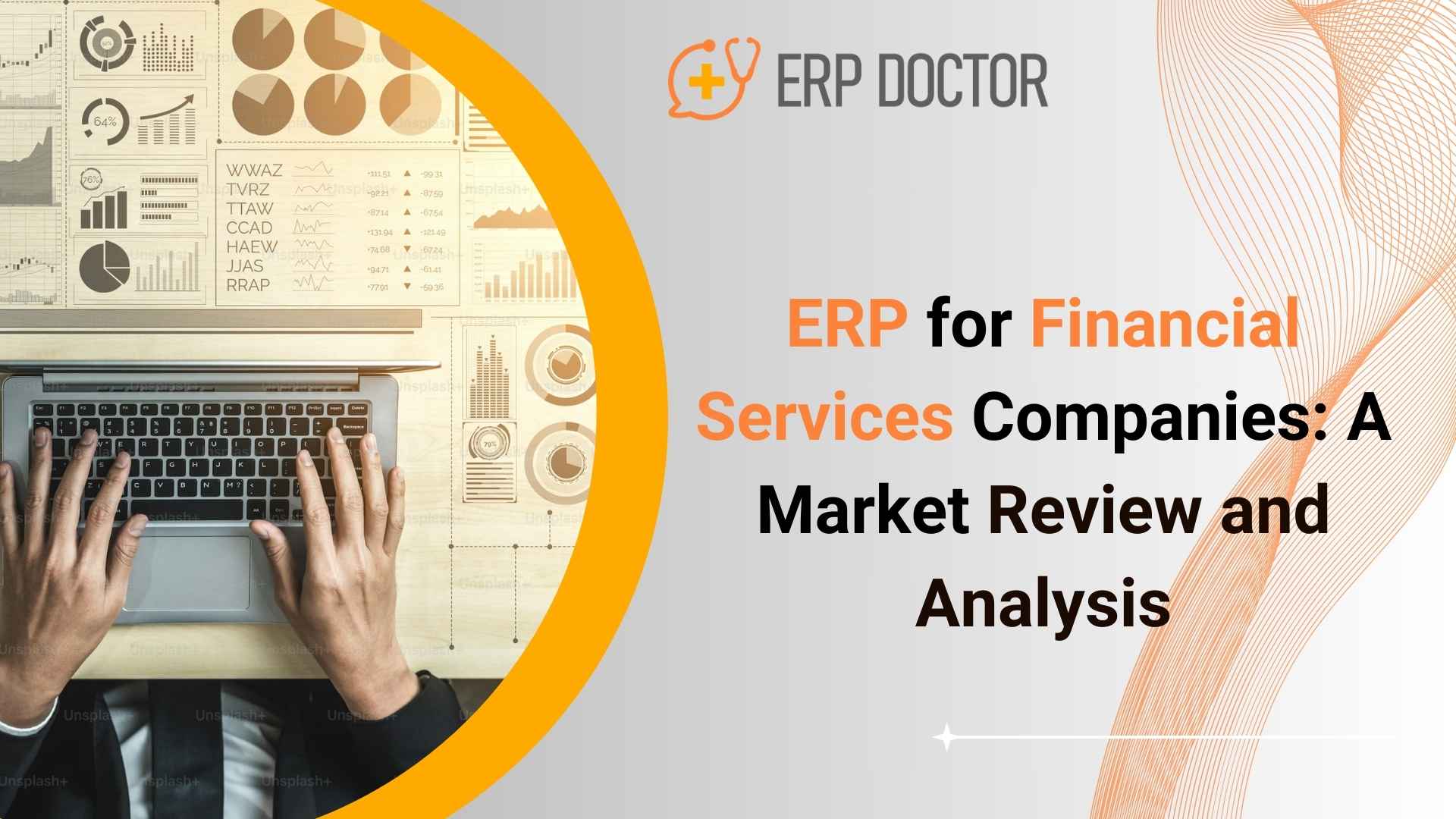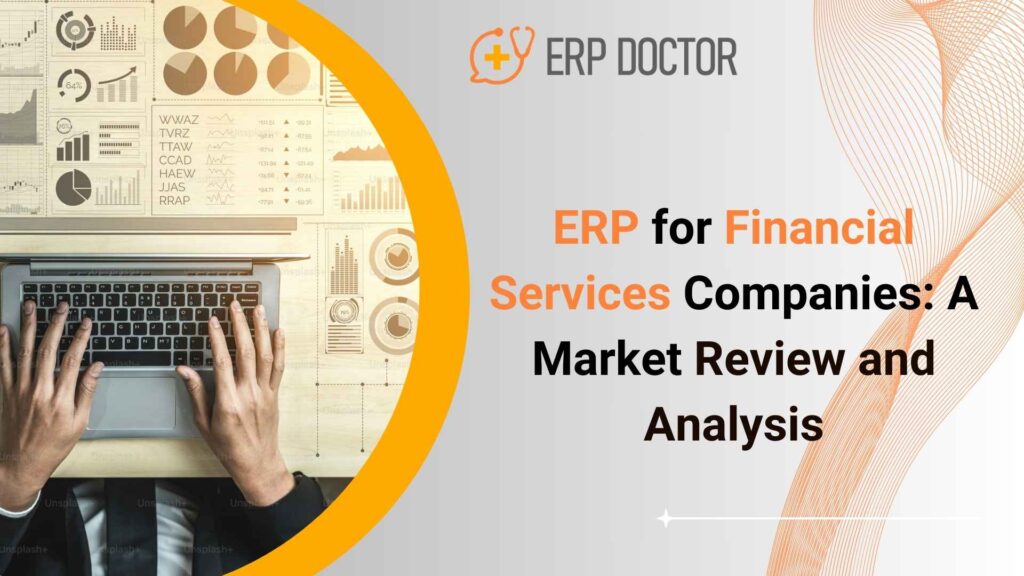
ERP for Financial Services Companies: A Market Review

ERP Solutions for Financial Services Companies: A Review of Current Landscape
The financial services industry is a complex and highly regulated sector that requires precision, efficiency, and innovation to stay ahead. With the increasing demand for digital banking, mobile payments, and fintech solutions, financial services companies must adapt to changing market trends, regulatory requirements, and customer preferences. To achieve operational efficiency, improve customer experience, and maintain a competitive edge, many financial services companies are turning to enterprise resource planning (ERP) solutions. We will review the current landscape of ERP solutions for financial services companies, including the benefits, challenges, and trends shaping the industry.
ERP: The Key to Operational Excellence in Financial Services Companies
- Improved Operational Efficiency: ERP solutions can help financial services Industry streamline their operations, reduce costs, and improve productivity.
- Enhanced Customer Experience: ERP solutions can provide financial services Industry with a 360-degree view of their customers, enabling them to offer personalized services, improve customer engagement, and increase customer loyalty.
- Better Risk Management: ERP solutions can help financial services Industry manage risk more effectively, including credit risk, market risk, and operational risk.
- Improved Compliance and Regulatory Management: ERP solutions can help financial services Industry manage compliance and regulatory requirements more efficiently, including anti-money laundering (AML) and know-your-customer (KYC) regulations.
ERP Implementation in Financial Services: Managing Complexity and Risk
- Complexity of Financial Services Operations: Financial services Industry have complex operations that require specialized ERP solutions.
- High Cost of Implementation: ERP implementation can be costly, especially for large financial services Industry.
- Change Management: ERP implementation requires significant changes to business processes, which can be challenging for employees to adapt to.
- Integration with Legacy Systems: ERP solutions must integrate with legacy systems, which can be challenging and require significant customization.
Trends Shaping the ERP Landscape for Financial Services Companies
- Cloud-Based ERP: Cloud-based ERP solutions are becoming increasingly popular among financial services Industry due to their scalability, flexibility, and cost-effectiveness.
- Artificial Intelligence (AI) and Machine Learning (ML): AI and ML are being used to enhance ERP solutions, including predictive analytics, chatbots, and automated workflows.
- Blockchain: Blockchain technology is being used to enhance ERP solutions, including supply chain management, identity verification, and smart contracts.
- Digital Transformation: ERP solutions are playing a critical role in digital transformation initiatives among financial services industry, including digital banking, mobile payments, and fintech solutions.
Financial Services Transformation: The ERP Imperative
In conclusion, ERP solutions are critical in helping the financial services industry achieve operational efficiency, improve customer experience, and maintain a competitive edge. While there are challenges associated with ERP implementation, the benefits far outweigh the costs. As the ERP landscape continues to evolve, the financial services Industry must stay ahead of the curve by adopting cloud-based ERP solutions, AI and ML, blockchain, and digital transformation initiatives.
ERP Solutions for Financial Services: A FAQ Guide
What are the key benefits of implementing an ERP solution for financial services?
ERP solutions streamline financial operations, enhance compliance, improve reporting accuracy, and provide real-time insights for better decision-making.
How does an ERP system improve financial reporting and compliance?
ERP systems automate financial reporting processes, ensuring regulatory compliance with built-in audit trails and standardized reporting frameworks.
Can ERP solutions help with risk management in financial services?
Yes, ERP systems provide risk assessment tools, fraud detection capabilities, and compliance tracking to mitigate financial risks effectively.
How does an ERP solution enhance customer relationship management in financial institutions?
ERP systems integrate CRM functionalities, allowing financial institutions to manage client data, track interactions, and provide personalized services.
Is cloud-based ERP better for financial services compared to on-premises solutions?
Cloud-based ERP offers greater scalability, and lower upfront costs, making it an ideal choice for financial services looking for flexibility.
How does ERP software help with financial forecasting and budgeting?
ERP systems provide predictive analytics and financial planning tools that enable accurate budgeting, forecasting, and resource allocation.
What are the typical modules included in an ERP system for financial services?
Common modules include general ledger, accounts payable/receivable, cash management, financial reporting, and compliance management.
How can financial institutions ensure a smooth ERP implementation?
A successful implementation involves thorough planning, stakeholder engagement, choosing the right vendor, and ongoing training for employees.
Would you be ready to explore the power of ERP Solutions? Let’s start the conversation!
Warning: Trying to access array offset on value of type null in /home/u231991539/domains/erpdoctor.in/public_html/wp-content/plugins/wpforms/includes/class-frontend.php on line 109







